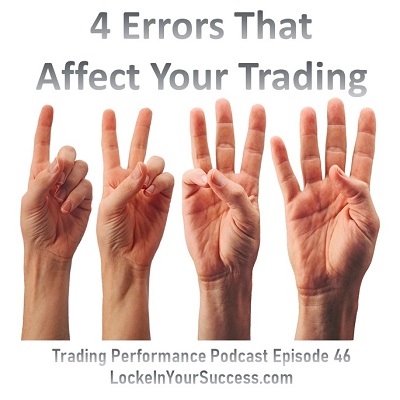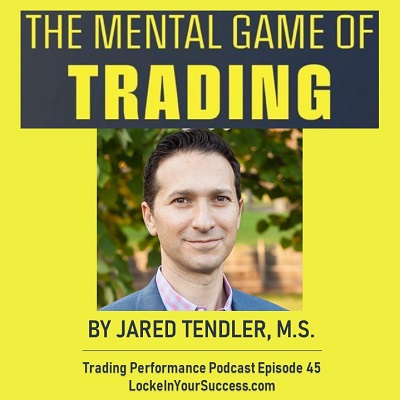
Eliminate these 4 errors that affect your trading. There are tremendous gains to be had if you do. In this excerpt from a Trading Performance session, John has an in-depth discussion which was inspired by his interview with Jared Tendler, the author of The Mental Game of Trading.
Click here or in the video below to learn more!
Subscribe: YouTube
Subscribe: Soundcloud
Impossible Expectations
There is a difference between expectations and aspirations. An expectation is something that you can EXPECT will happen because the result is within your capability and your control. Aspirations on the other hand are when you work towards an ideal where you understand the outcome isn’t fully within your control, and therefore, may not be possible. Your goals in trading outcomes should not be expectations, they should be aspirations. If you expect to win every time in trading, you are going to lose confidence because you’re expecting to produce something that is outside your control and unattainable. If you aspire to win more consistently but also realize it’s not possible to win all the time, it allows you to focus on improving your process as a trader and push through those temporary setbacks.

Expecting to Eliminate Variance
Expecting to eliminate variance only leads to disappointment and frustration. Trading results are supposed to be variable; if you look at the past year with the coronavirus, we can clearly see how much market conditions can change. A trader cannot expect to apply the same strategy in vastly different situations and expect the same result. This doesn’t stop us from having good trades, it merely makes us adjust strategies. Variability is here to stay, and it is important to learn how to adapt.
Misinterpreting Feedback
False feedback is when you make good decisions, but get a bad result. Or when you make poor decisions, but get a good result. False feedback in trading is as high, if not higher, than anything else that you can do. If you are using trade-by-trade results for validation, then you are very likely basing your confidence level and position sizes on the random fate of luck rather than skill. This a loop that prevents you from improving as a trader.
Confidence Level Based on Results
You can get lucky and win multiple times in a row when trading irresponsibly, and you can also get unlucky and lose multiple times in a row while trading perfectly. If the strategy happens to lose, it doesn’t necessarily tell you anything about the viability of the strategy, and vice versa. But if you win and get really confident, thinking you found the perfect strategy, and your confidence level goes through the roof you’re only setting yourself up for problems down the road.
If you missed the interview with Jared Tendler, click here or on the icon to watch it now!





Leave a Reply
You must be logged in to post a comment.